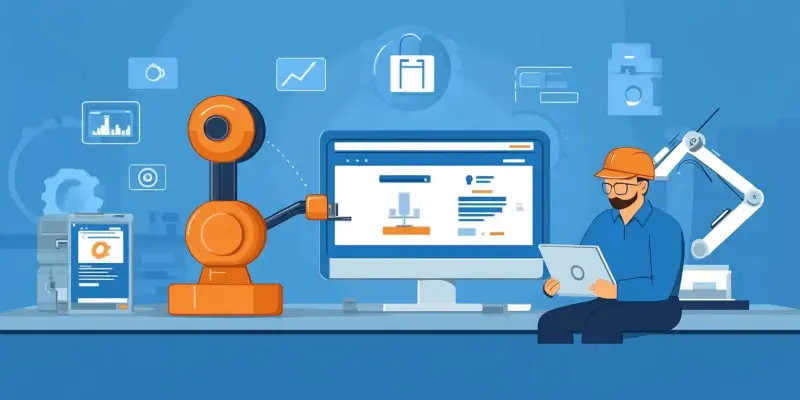In the ever-evolving manufacturing industry, Chief Financial Officers (CFOs) face numerous challenges, including complex supply chains, fluctuating raw material prices, and maintaining operational efficiency. The integration of Accounts Payable (AP) automation provides these financial leaders with real-time insights, allowing for enhanced decision-making and overall improved financial success. By transforming raw financial data into actionable information, AP automation plays an essential role in navigating an increasingly complicated financial landscape.
Real-Time Financial Visibility
A critical component of effective cash flow management is having real-time visibility into payables. Traditional manual AP processes, which involve tedious tasks and paperwork, often lead to delays in invoice approvals and obscure financial liabilities. This lack of timely data can cause inaccurate financial forecasting and missed opportunities for cost savings. MetaViewer’s AP automation revolutionizes this area by providing immediate access to real-time data on outstanding invoices, payment cycles, and cash flow trends. This seamless access empowers CFOs to streamline financial planning, eliminate late fees, and capitalize on early payment discounts, thus contributing to more precise financial forecasts.
In addition to ensuring timely invoice approvals, real-time financial visibility helps CFOs in identifying and mitigating financial risks quickly. With AP automation, any discrepancies or irregularities in financial transactions can be detected promptly, thereby preventing potential financial mishaps or fraud. The transparency provided by automated systems ensures that every financial action is traceable and verifiable, adding an extra layer of security to the manufacturing CFO’s operations. This enhanced financial oversight is crucial in maintaining the integrity of financial data and fostering trust within the organization.
Cost Control and Spend Management
Managing costs is a persistent challenge in manufacturing due to the unpredictability of expenses associated with raw materials, transportation, and production processes. The implementation of AP automation offers an effective solution by providing detailed, real-time spend analytics. These analytics enable CFOs to scrutinize spending patterns by supplier, department, or category, facilitating the identification of potential savings. Through comprehensive analysis, CFOs can uncover cost-saving opportunities, monitor supplier performance, and reduce invoice processing costs with automated workflows.
Moreover, AP automation aids in optimizing budget allocation by providing insights into expenditure trends, enabling CFOs to make informed decisions regarding resource allocation. By identifying areas with excessive spending, CFOs can implement cost-control measures and negotiate more favorable terms with suppliers. The ability to generate detailed expenditure reports also allows for better financial planning and performance tracking, ensuring that financial goals are aligned with organizational objectives. Ultimately, this strategic approach to manage spending enhances the overall financial health of the manufacturing enterprise.
Optimizing Supplier Relationships
In the ever-changing landscape of the manufacturing industry, Chief Financial Officers (CFOs) encounter numerous challenges such as intricate supply chains, volatile raw material costs, and the need to maintain operational efficiency. In this context, the integration of Accounts Payable (AP) automation has emerged as a vital tool for financial leaders. AP automation offers real-time insights, enabling CFOs to make more informed decisions and achieve greater financial success. By converting raw financial data into actionable intelligence, AP automation helps navigate the increasingly complex financial environment. This technology not only streamlines payment processes but also ensures greater accuracy and compliance, ultimately contributing to the organization’s overall operational efficiency. As manufacturing continues to evolve, the role of AP automation in supporting CFOs becomes even more critical, underscoring its necessity for improved decision-making and long-term financial health in an increasingly competitive market.

